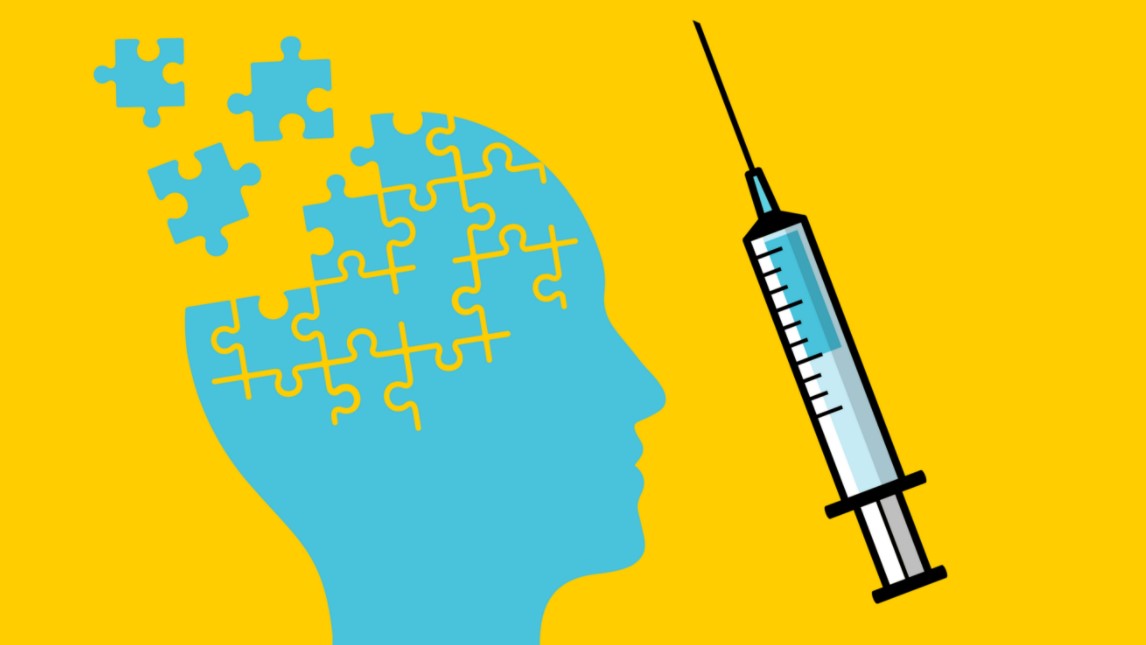JAMA Health Forum
Jarrett Ramos Lewis
November 18, 2020, insightsyale
How much is the decline?
Over the past few months, there has been an indisputable decline in the number of people in the US who say they plan to get the vaccine for coronavirus disease 2019 (COVID-19) when one becomes available.
- A national survey by Pew Research Center in May found that 72% of people in the US said they would get the vaccine if it were available.
- By September, that number had dropped to 51%.
- Survey results from CNN showed a similar decline, from 66% who said they would get the vaccine in May to 51% in early October.
What are the causes?
What is disputable, however, is why this decline is occurring.
- The COVID-19 pandemic has become highly politicized, with partisanship affecting attitudes toward wearing a mask and confidence in the accuracy and validity of COVID-19 statistics.
- Similarly, much has been made about the politicization of the vaccine.
- And a number of voters believe that politics have influenced the development of the vaccine.
A Kaiser Family Foundation survey from early October found that 62% of people in the US are worried that the US Food and Drug Administration (FDA) will rush to approve a COVID-19 vaccine without making sure that it is safe and effective owing to political pressure from the Trump administration.
Moreover, the survey found that 55% of people believe that President Trump is intervening with the FDA’s job of reviewing and approving a COVID-19 vaccine.
But while coverage has primarily pinpointed the driver of the decline to be political in nature, there are a number of other factors at hand.
- First, people in the US have a history of reluctance to accept new vaccines.
Shortly after the polio vaccine was made available in 1954, Gallup found that 60% of people said they would get the newly created vaccine, while 31% said they would not get the vaccine and 9% were not sure. We know how history transpired, with near universal adoption of the polio vaccine in the US today; however, a sizable number of people were hesitant at the outset. Similarly, after the attacks of September 11 elevated concerns of biological attacks on people in the US, including the use of smallpox, Gallup found that 55% of people would get a smallpox vaccine, while 35% would not get the vaccine and 10% were unsure.
- Next, attitudes in the US on the importance of vaccines have endured some erosion over the past 20 years (though they are still high).
A 2019 Gallup survey found that 84% of people believe it is extremely important that parents get their children vaccinated, down from 94% who said the same in 2001. Similarly, a 2018 Research America/Zogby Analytics national survey found that 70% of people in the US said they believe vaccines are very important to the health of our society, down from 80% who said the same in 2008.
- The decline in willingness to get the COVID-19 vaccine might be a result of who people believe are driving decisions on the vaccine itself.
A 2016 Pew Research Center survey in the US found that 73% of people believed that medical scientists should have a major role in making decisions about policy issues related to childhood vaccines. Comparatively, just 25% felt that elected officials should have a major role in those decisions. A study published in JAMA Network Open based on a convenience sample collected in July 2020 found that the probability of choosing a COVID-19 vaccine was higher when recommended by the Centers for Disease Control and Prevention or the World Health Organization than by President Trump or former Vice President Biden.1
- Many people in the US are concerned about the expedited development and trial process.
The Kaiser Family Foundation/The Undefeated Survey on Race and Health conducted in September found that 43% of people are not confident that the COVID-19 vaccine will have been properly tested for safety and effectiveness when one becomes available. And despite our desire to return to normalcy, a survey from Pew Research Center in September found that 78% of people in the US are more concerned that the approval of a COVID-19 vaccine will move too fast, compared with 20% who are more concerned that the approval will move too slow. The same survey found that 77% of people believe it is likely that a vaccine will be used before we fully understand whether it is safe and effective.
- Black individuals in the US, who have indicated from the early days of the pandemic that they are much less likely to be willing to get the vaccine than White individuals in the US, are highly skeptical about the development of the vaccine.
The Kaiser Family Foundation/The Undefeated survey found that 33% of Black individuals are confident that the development of a COVID-19 vaccine is taking the needs of Black people into account, compared with 65% who are not confident.
- The decline in willingness to take the vaccine has not been more significant for voters of one party or another.
As the Pew Research Center data show, in May, 79% of Democrats and 65% of Republicans said they would get the vaccine. By September, those numbers had dropped to 58% of Democrats and 44% of Republicans, a 21-point drop among voters of both parties.
- People in the US are ready to move on from the COVID-19 pandemic, but when it comes to a vaccine, many have a wait-and-see attitude.
An October NBC News/Wall Street Journal survey found that just 20% of people in the US say they will get the vaccine as soon as they can, while another 50% plan to wait until the vaccine has been available for a while to see if there are major problems or adverse effects.
- The mumps vaccine was the fastest vaccine to be developed, taking 4 years.
All signs point to the development of the COVID-19 vaccine shattering that record. The breakneck pace of development is a testament to our innovative medical system and the research and development efforts by pharmaceutical companies and public health agencies. But as we move toward having an approved COVID-19 vaccine, it is important to understand that for many, it will take time to feel comfortable and confident in getting the vaccine. While the politicization of the vaccine is to blame for some of that delay, the increased reluctance of people in the US to get a COVID-19 vaccine runs much deeper than politics.
References
See the original publication
About the author & affiliations
1Public Opinion Strategies, Alexandria, Virginia
Originally published at https://jamanetwork.com












